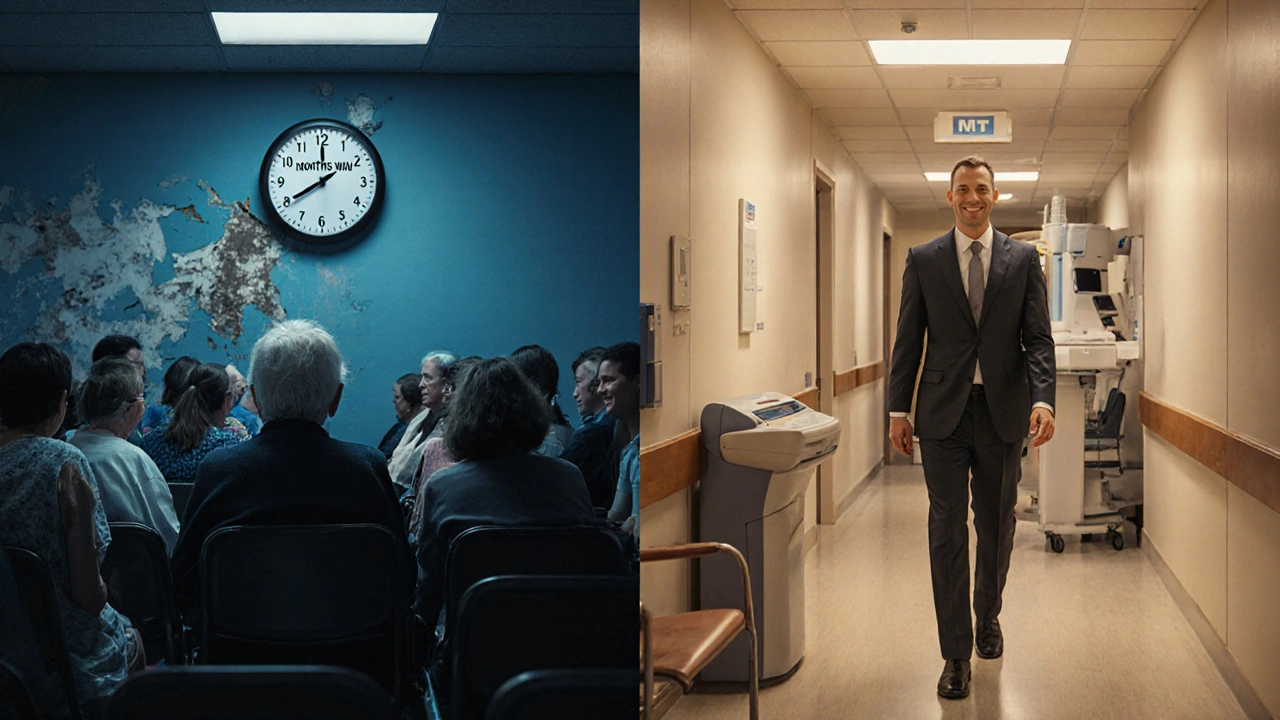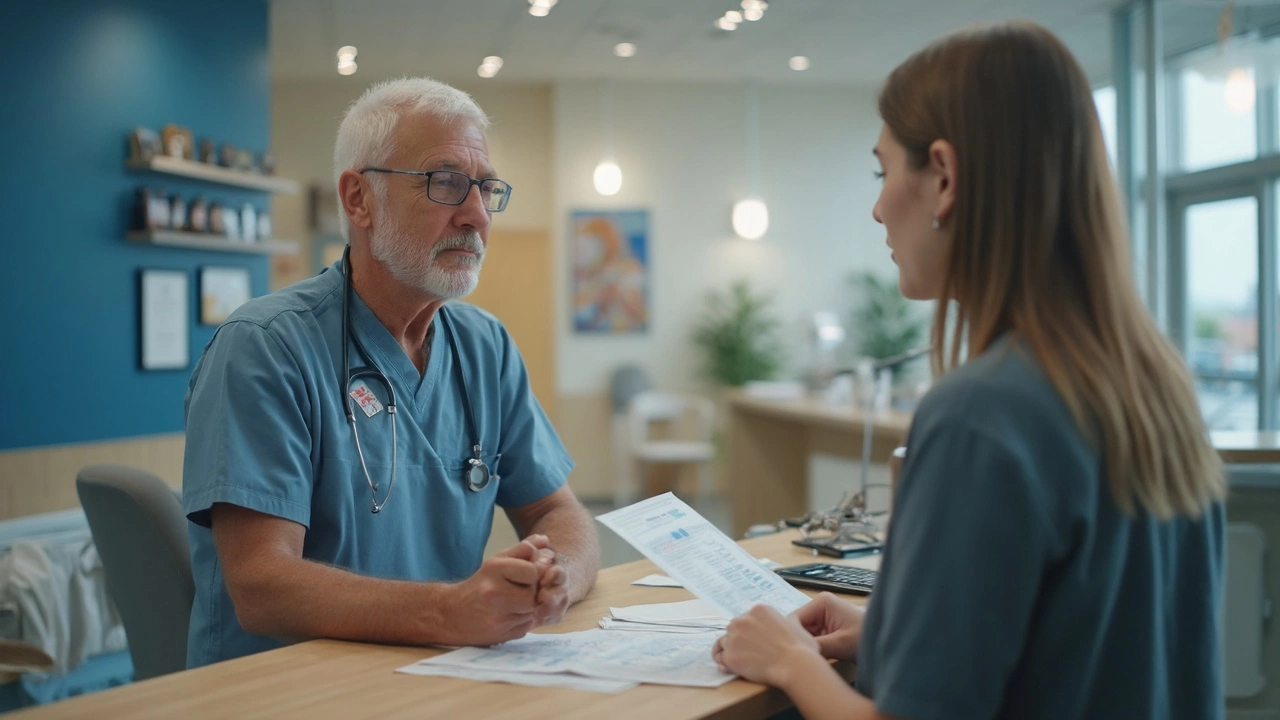Medical Costs: What You Need to Know to Keep Your Wallet Healthy
Healthcare bills can feel like a mystery, especially when you get an unexpected charge after a visit. The good news is you don’t have to guess. By knowing where the money goes, you can spot save‑able spots and avoid surprise fees.
Why Medical Bills Feel So High
First, every treatment has several price layers. There’s the doctor’s fee, the hospital’s charge for the room, lab tests, medication, and sometimes a separate billing for imaging like X‑rays. Add to that the mark‑up that private insurers or the NHS may apply, and the total can jump quickly.
Second, location matters. A surgery in London often costs more than the same procedure in a regional hospital. The same goes for dental work abroad versus at home – cheaper options exist, but you need to weigh quality and safety.
Third, insurance coverage varies. Private health insurance in the UK may cover part of a knee replacement, but you could still pay a co‑pay for physiotherapy. In the US, some plans cover 80 % of an MRI, leaving you with a sizable deductible.
Ways to Lower Your Healthcare Expenses
Start by asking for an itemised bill. It lets you see every charge and spot duplicate or unnecessary fees. If a lab test looks pricey, request a cheaper alternative or see if your GP can order it directly.
Second, compare prices before elective procedures. Websites that list surgery costs, dental implant fees, or cosmetic surgery rates can save you hundreds or even thousands.
Third, check if you qualify for NHS exemptions, charity discounts, or government subsidies. Tourists and expats often miss out on free NHS care because they don’t know the rules.
Fourth, use prescription discount cards or generic medications when possible. A brand‑name drug can cost double a generic with the same effect.
Finally, consider medical tourism for non‑urgent, high‑cost treatments like dental work or top surgery. Countries with lower labor costs can offer safe, quality care at a fraction of the price—but always verify credentials and read patient reviews.
Keeping track of your medical costs isn’t just about saving money; it’s about making informed choices that protect your health. Ask questions, shop around, and use every resource at your disposal. With a bit of effort, you’ll see your bills shrink and your confidence grow.
Why is private healthcare unfair?
Private healthcare isn't about choice-it's about who can afford to jump the line. Those with money get faster care. Those without wait, sometimes with deadly consequences. This is how inequality becomes medical policy.
Is Healthcare Better in the UK or US? Insurance, Costs, and Real-Life Impact
Ever wondered whether healthcare is better in the UK or the US? This article compares how both countries handle insurance, costs, patient experiences, and everyday challenges. You'll find clear points about the strengths and downsides of each system, plus handy tips for dealing with healthcare from both sides. If you're considering a move or just want to understand your options, this is packed with practical info.
Negotiate Price Down: Private Surgery Costs Explained
Trying to get a better deal for private surgery? This article breaks down the real-life ways you can negotiate the price down, without feeling awkward or clueless. You'll get insider tips, common tactics used by hospitals and clinics, and what the numbers actually look like in 2025. Discover how providers think, and learn to spot leverage you didn't know you had. No jargon, just straight talk.
Private Healthcare Cons: What You Need to Know Before You Choose
Thinking about going private for healthcare? It's important to consider the downsides before making the switch. Private healthcare often means bigger bills, unequal access, and the risk of getting pushed down the priority list if you can't pay. This article breaks down exactly what can go wrong with private medical care. Get the facts so you know what you're getting into.
What Happens Without Health Insurance in America?
Navigating life without health insurance in America can be daunting, leading to significant financial strain and limited access to necessary medical care. From handling unexpected emergencies to managing chronic conditions, uninsured individuals face unique challenges. Learn about potential solutions and tips for mitigating the costs and risks of being uninsured in the U.S. Discover resources and options that could help bridge the gap in healthcare coverage.
Why Private Healthcare Might Not Be Your Best Choice
Private healthcare, though often perceived as efficient and patient-friendly, presents several challenges. These include high costs, unequal access, potential focus on profit over patient care, and limitations on treatment options. Exploring these issues helps patients make informed decisions about their medical care.
Exploring the Pitfalls of Private Healthcare Systems
Private healthcare, while often lauded for its efficiency and access to cutting-edge treatments, bears several inherent drawbacks. This article delves into the disadvantages, including high costs, potential inequalities, and issues relating to the prioritization of profit over patient care. Moreover, it explores the impacts on both patients and public healthcare systems. Drawing on various studies and statistics, this piece aims to present an unbiased view of the private healthcare landscape.







